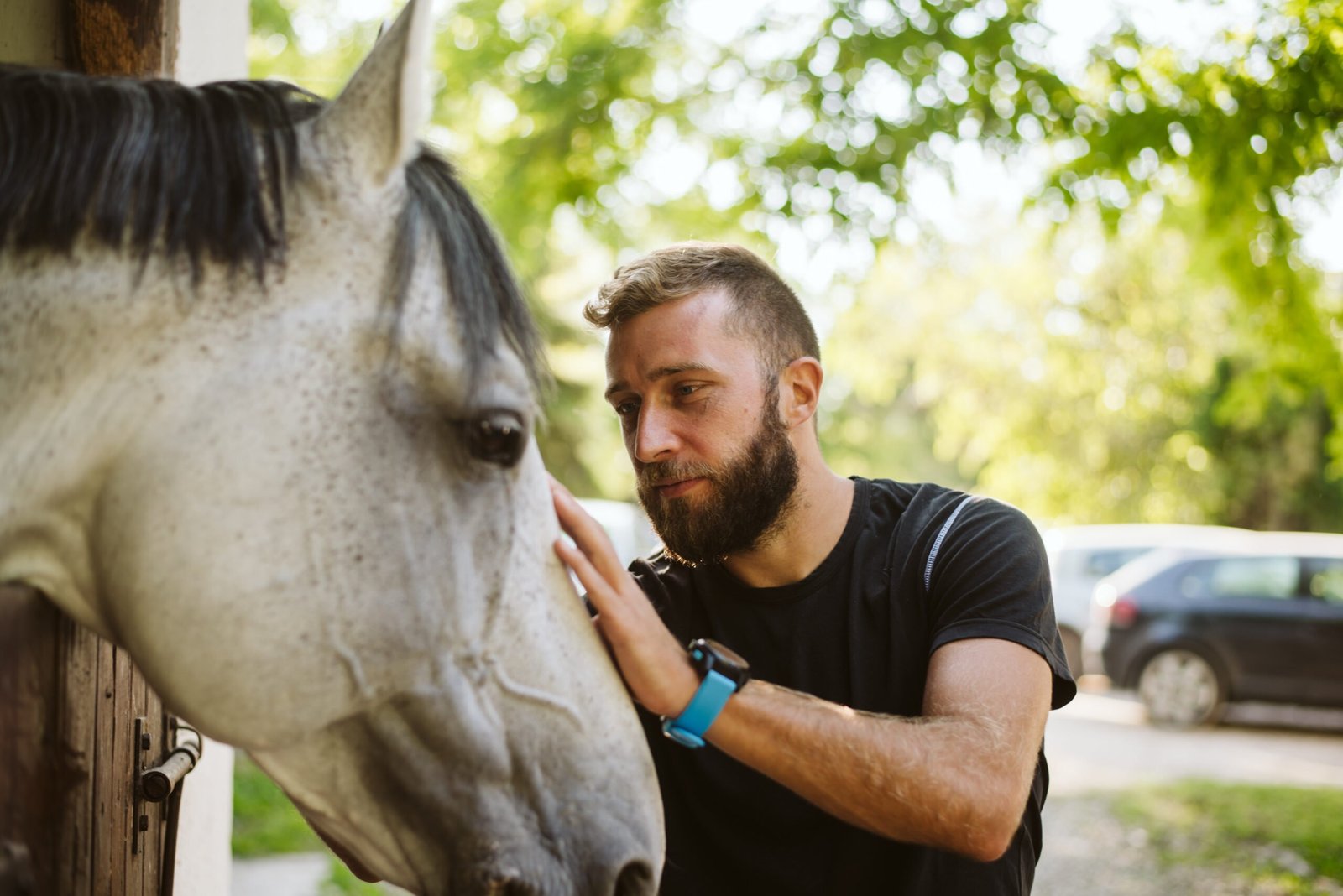Do Horses Improve Mental Health?
Many people agree that interacting with horses provides a therapeutic effect. Countless stories and personal experiences comprise a veritable mountain of anecdotal evidence supporting this idea.
The benefits we enjoy around horses may seem so obvious that some might question the need to conduct further research. However, the more we learn about how and why horses improve mental health in humans, the better we’ll be able to apply that knowledge to help individuals suffering from painful and debilitating conditions.
What is Equine Assisted Therapy?
Equine-assisted therapy, or EAT, differs from everyday horse interactions in that it follows a structured program designed to help participants progress through experiential learning. According to a study conducted by the Man O’ War Project, EAT consists of “purposeful interaction between a physically able person and a live horse through a facilitator, often a mental health professional certified in animal-assisted therapy.”
Though EAT programs are constantly developing and improving, a typical program might consist of weekly sessions that include learning about safe horse-human interaction, grounding and focus exercises, grooming, groundwork, teamwork activities, and connecting with horses.
Is EAT Effective?
Participants in equine-assisted therapy report high overall satisfaction with the experience, and EAT exhibits lower drop-out rates than other mental health therapies. But, is this simply because horses are enjoyable to be around? Or does EAT cause measurable changes that improve mental health? Here are several areas in which EAT has proven to be effective.
Beneficial Changes in the Brain
The Man O’ War Project at Columbia University Irving Medical Center works to provide better scientific data about EAT and explore how it can help veterans struggling with PTSD.
In 2020, the Man O’ War Project published results from a neural study that compared MRI brain scans of participants suffering from PTSD before EAT treatment, post-treatment, and three months following the treatment. The study states that “patients with PTSD might have a disrupted, dysfunctional reward circuitry” in the brain that may “impair cognitive control, self-regulation of behavior, and emotion.” They also noted that such reward circuitry impairment is common in those suffering from addiction disorders and depression.
The participants’ MRI scans exhibited positive changes in reward circuitry following EAT, which improved their symptoms. An open trial published by the Man O’ War Project in 2021 showed that the benefits of EAT persisted, even three months after treatment concluded.
Slowing of the Respiration and Heart Rate
Horse-heart coupling is another aspect of EAT that can help those struggling with mental illness. It occurs when a human’s heartbeat falls into sync with the slower heartbeat of a horse. EAT expert Dr. Katie Holtcamp explained why this is beneficial to participants:
As the person interacts with the horse, the lower respiration and heart rate of the horse create a physiological effect lowering the respiration and heart rate of the human in real time. This process also works to decrease and control the physiological manifestations of anxiety, which allows for the cognitive portion of therapy to be more effective.
A 2016 quantitative heartbeat coupling study also found that horses and humans engaging in one-on-one interaction experienced this effect more strongly than those who were simply close to a horse. While there is still much we don’t understand about this phenomenon, EAT participants who handle and directly interact with horses likely benefit from horse-heart coupling.
Improvements in Mental, Emotional, and Social Function
Another study on EAT, published in October of 2023, involved one hundred participants in Cairo, Egypt, who suffered from substance use disorder and other related mental and psychological issues. By collecting questionnaire data from both a control group who did not receive equine therapy and an intervention group who did, researchers concluded that EAT improved participants’ perceived self-esteem, self-efficacy, and emotional regulation. The therapy also introduced principles of trust, patience, and respect to alleviate anxiety, reduce disruptive behaviors, and foster overall well-being.
Interviews collected during a study in Denmark highlighted other benefits EAT participants experienced: “The informants talked about the horses… like catalysts for feelings such as love and emotions like inner peace and… being comforted. The horses also [gave] the informants the opportunity to immerse themselves and show care.”
Participants expressed greater confidence, increased trust, better mind and body awareness, and more ability to take control over their life circumstances. One participant noted that engaging in EAT required a person to be fully present: “[With some therapies,] you can sit down and disappear into your own thoughts at the same time. You cannot do that with a horse. There you must just focus on the horse and drop everything else and leave it.”
How Can I Stay Informed?
Equine-assisted therapy is one of the most rapidly developing sectors of the horse industry, but many questions remain, such as whether or not riding is as beneficial as groundwork for mental health applications, how to structure programs, which therapy candidates will be most likely to benefit from participation, and how to overcome the costs of implementing it on a larger scale.
As new research is completed, the Equine Assisted Services Research Report strives to make new scientific knowledge within the field readily available, providing better access to the latest EAT information for professionals, medical authorities, educators, and clients.
If you’d like to get involved in equine-assisted therapy, the PATH International website provides more information about how to obtain certification or find a qualified facility. If you’ve benefited from equine therapy and want to share your experience, please consider submitting a story.
Image by Zoran from Adobe Stock.






